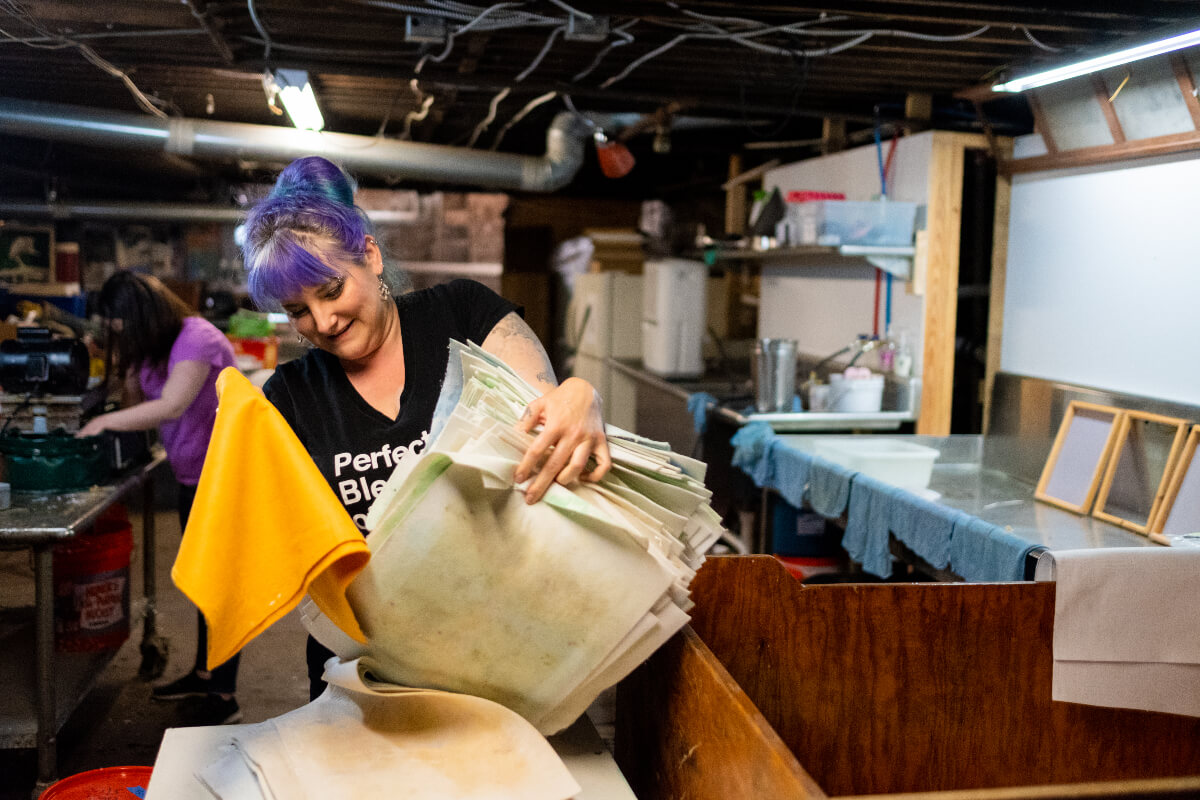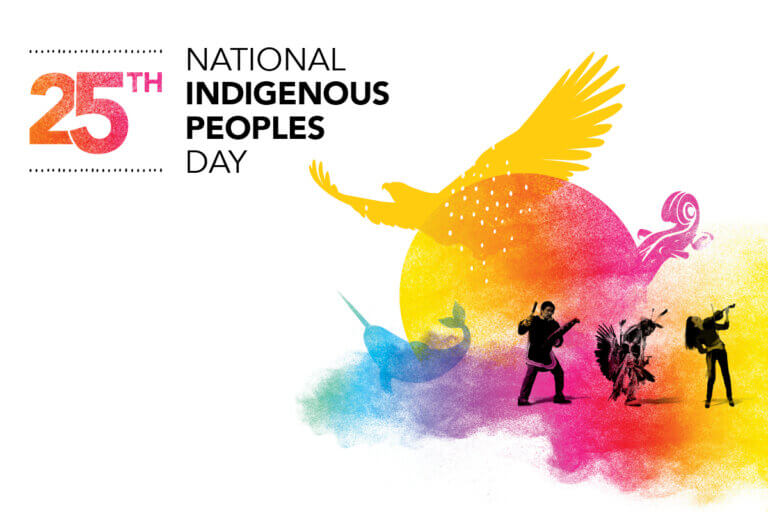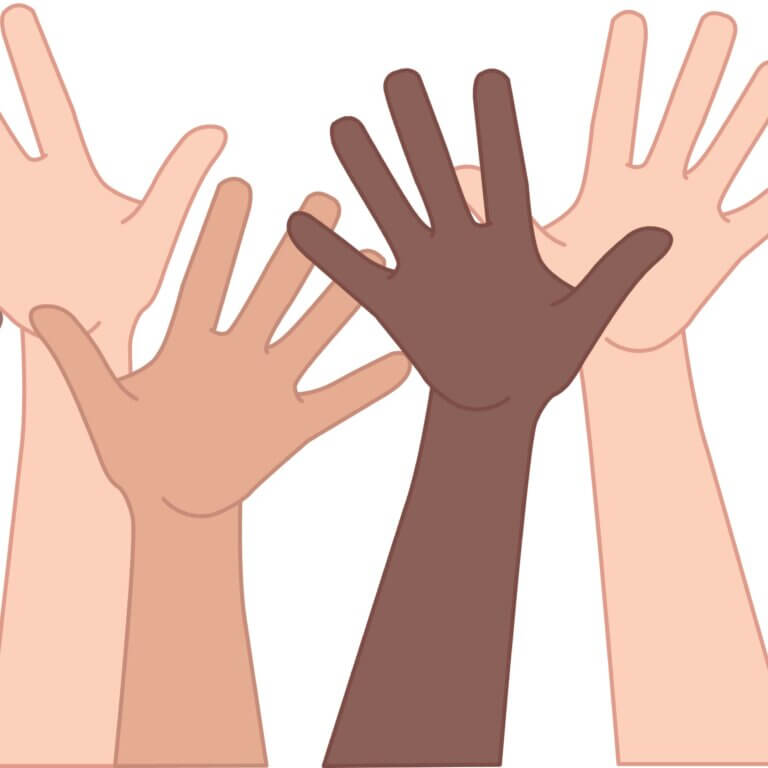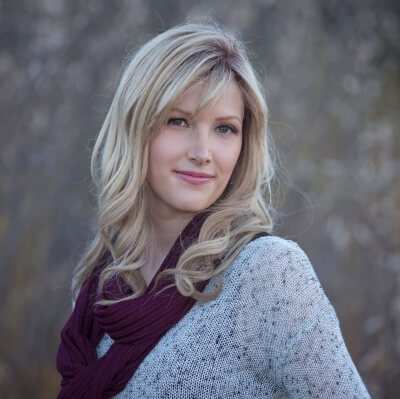We asked six female founders to share what they wish they knew when starting their business, and their advice for other founders.
Emily O’Brien, Founder of Comeback Snacks
Emily O’Brien founded Comeback Snacks, a gourmet popcorn business and platform for prison reform, in 2019. Her company aims to raise awareness of the importance of re-integration after prison. And her business is growing rapidly — so much that in June 2021, she opened the brand’s first brick-and-mortar location in Hamilton, Ontario (and shared a Comeback Snacks popcorn recipe with us to celebrate).
What Do You Wish You Knew When Starting Your Business?
“When it comes to starting and running a business, I think I have a different take on things that I wish I knew. We can always wish we know how to do things, but for me, I have always found joy and excitement in the discovery of how things work. If you go into business just wishing you knew everything, you get frustrated easier. By always having a willingness to learn and approach challenges as something fun rather than annoying and difficult, it makes the whole thing such a thrilling adventure. And I do love my thrills.”
What Is Your Advice for Other Female Founders?
“As a female founder in the snack business, the one thing I did wish I knew was how long sometimes what seems as the simplest tasks could take. When you get so excited about a product or new offering, you wish it could be done and executed instantly. However, you need to establish patience and not rush things, and really dedicate time to being meticulous!”
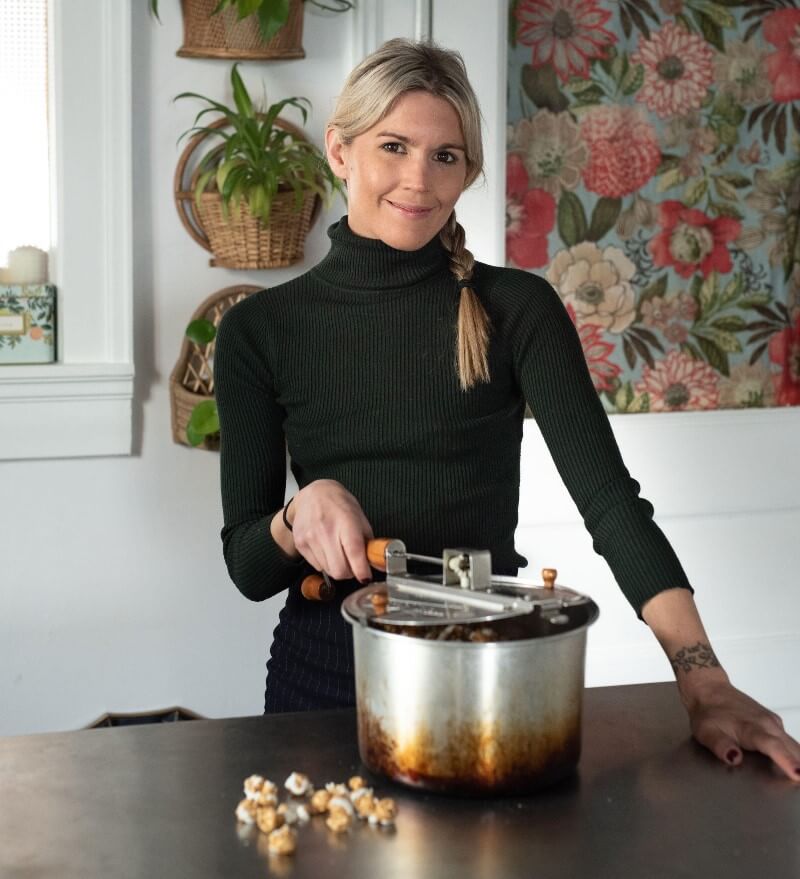
Renia Pruchnicki, Owner and Product Designer of Truth Belts
Renia Pruchnicki runs Truth Belts, a vegan belt company she started in her living room. Pruchnicki designs the entire product line of belts and accessories, which are all made in Canada. Truth Belts has been recognized by PETA’s vegan brand awards and is celebrating 20 years of business this year.
What Do You Wish You Knew When Starting Your Business?
“I wish that I would have known that it would have been safe to quit my full-time job or part-time job sooner because I waited about 10 years before I quit my full-time job, which then turned into a part-time job. And I was afraid to leave, but if I would have known, I would have taken that leap… So I would have said, ‘Don’t be afraid, just go for it, you have support.’”
What Is Your Advice for Other Female Founders?
“The first few years are the hardest because a lot of times you’re not paying yourself. It took two and a half years before I hit the break-even point. So my advice would be, don’t listen to naysayers because there’s always people around you who might say, ‘Oh, it’s too hard.’ So that’s number one. And number two I would say, don’t give up, just keep pushing. There’s so many resources around you and courses to take. And when things go wrong in business, that’s simply a lesson. That’s a learning experience. It’s not a failure. A lot of these so-called failures happen in the beginning because you don’t know what you’re doing — you try things, they don’t work out — you just have to persevere those times.”
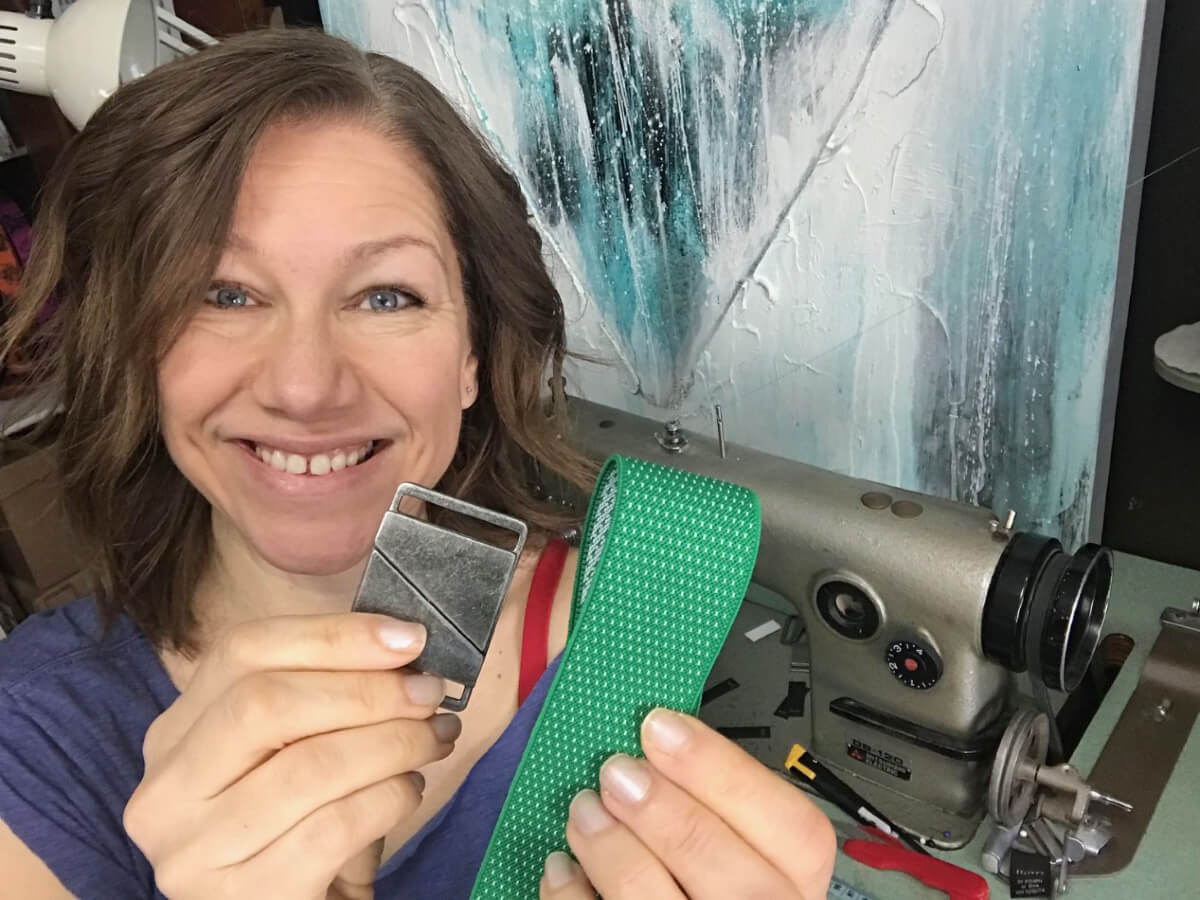
Genevive Savundranayagam and Sheba Zaidi, Mahara Mindfulness Cofounders
Savundranayagam and Zaidi are the co-founders of Mahara Mindfulness, a contemporary lifestyle brand with a mission to create products and experiences that offer people a stepping-stone into a world of mindful practices and personal transformation.
In early 2020, they left their decade-long corporate careers behind to launch the company — only a few weeks before the pandemic hit. They quickly pivoted from mindfulness events into product development and introduced The Human Being Journal.
What Do You Wish You Knew When Starting Your Business?
“There are so many things we wish we knew when starting out. Primarily that small businesses need to learn to leverage the one inherent advantage they have compared to their larger competition — the ability to move fast and pivot quickly from business planning to execution. We see founders spending far too long in the planning phase and losing valuable time. As an entrepreneur, your only real advantage is speed. You have to move quickly and feedback from the market will allow you to iterate faster and continue to stay competitive.” – Sheba Zaidi
Related Articles
What Is Your Advice for Other Female Founders?
“Know your “why” from day one. To be successful as an entrepreneur, you need to have a compelling vision and know what you stand for from the start. On bad days (of which there will be many!) you need to be able to come back to your “why.” What is driving you to solve this problem? Why do you care? What is going to inspire you to get up every day and hustle? For us, our intention was clear from the start. Our mission with Mahara was deeply personal and our “why” was clear — we wanted to make a meaningful difference in the world and inspire humanity to live mindfully.” – Genevive Savundranayagam

Christina Sjahli, Virtual CFO at CS Consulting
Sjahli is a virtual Chief Financial Officer (CFO) who works with mission-driven female entrepreneurs to translate their vision and long-term strategy into business growth and profit.
She is also the creator and host of Her CEO Journey, a business finance podcast for female entrepreneurs, where Sjahli and her guests discuss financial and business challenges female founders face on their journey to success.
What Do You Wish You Knew When Starting Your Business?
“That networking is so important. To tell you the truth, I have always been an introvert. I always tried to avoid networking because I kept thinking in my head, ‘Oh, I can just do it online. If I can just continue posting and elevate myself online, I can do this.’ But then I realized that meeting people and then having that personal connection — it’s way more important than just connecting online and posting online…. And I didn’t realize this because if you’re not a business owner, when you’re working for a company, you don’t really need it — because you’re not really trying to grow a business. And so networking is really key… And do not expect an instant result from your networking because it’s really about building a relationship with others.”
What Is Your Advice for Other Female Founders?
“I think a lot of mistakes that female founders make is they look at finance as something that is just accounting, bookkeeping and taxes… They think, ‘Oh, I just need a bookkeeper. And then I just need taxes done.’ Yes, and those are fine at the very beginning of your journey, but if you have a bigger vision of your business, for example, of going global or expanding nationally or internationally, this is where all the pieces need to come back together… [You need to ask yourself] can this be profitable? Am I going to be able to amplify my impact to a bigger market, but at the same time, can I also create profit? Because at the end of the day, as a female founder… you can have a family, you’re going to have needs. You got to think about retirement. If you don’t start thinking about if this business is going to be profitable or not — can I have a profit to support myself, to support the business, to support my employees, to support my supply chain, my suppliers — then you’re going to be left with zero. You’re going to create a business that’s not going to be sustainable in the long term. You cannot think of finance as something that is short-term — you really need to broaden your scope… It needs to be connected to your purpose and to your other business activities.”
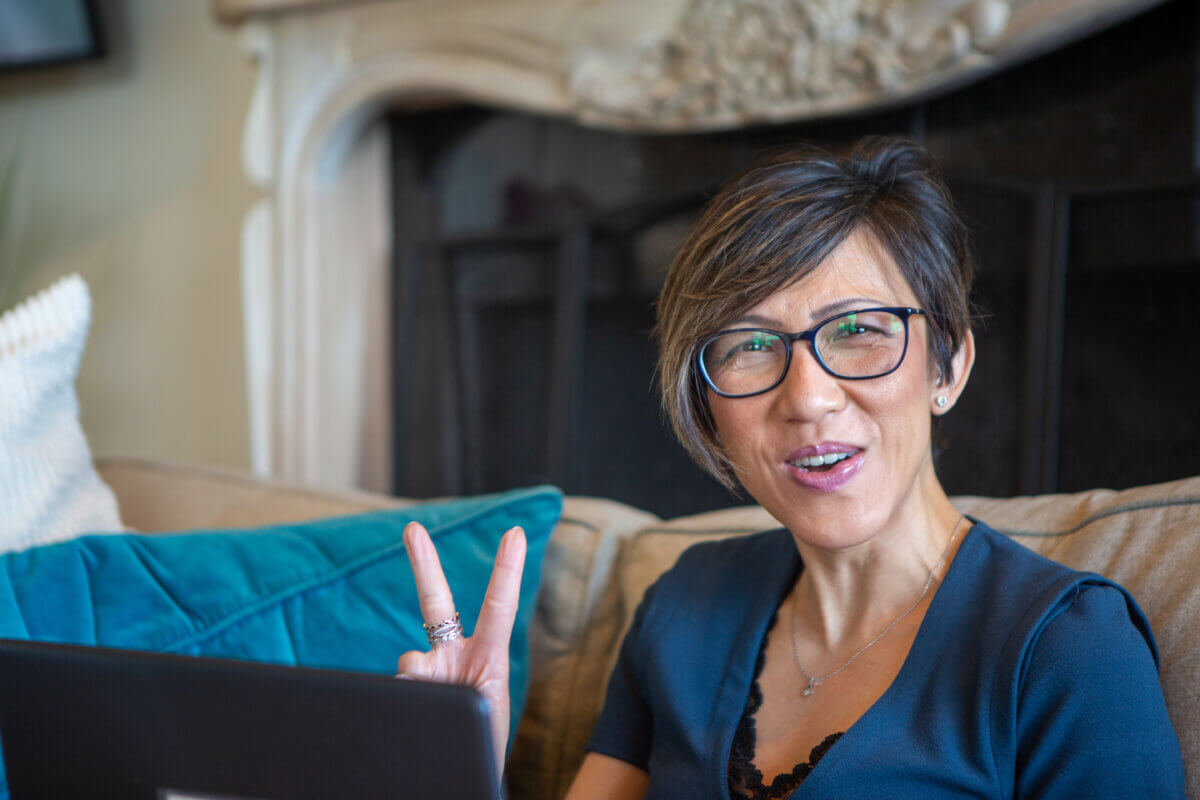
Janna Willoughby-Lohr, Owner/Artist of Papercraft Miracles
Willoughby-Lohr started Papercraft Miracles, a handmade paper art company, in 2004. They specialize in creating paper gifts for weddings, baby showers, charity events and other special occasions.
What Do You Wish You Knew When Starting Your Business?
“That Facebook was going to exist. That it was going to be possible to build your own e-commerce store in an easy way — and not too far in the future. I wish that I had been more dedicated and consistent in building and growing an email list — and taking it more seriously. It’s not that I didn’t really take it seriously, but for a long time it was my fun side gig. And I was like, ‘Oh, if I make money, that’s cool. But if I don’t, I made art and that’s also cool.’ I didn’t see it as a career for a really long time. So I probably would have done that earlier, not taking the other day jobs because I was afraid to be a full-time artist.”
What is Your Advice for Other Female Founders?
“Don’t listen to men who tell you, you can’t do it. That’s step number one. Just block them out entirely. What else would I tell other women? I would say start something — if there’s that one thing that keeps you up at night, figure out a way to do it, even if it’s only five minutes a week — and don’t give up on something that you really love. And if you hate your current job, quit it. You will figure it out. If you don’t have other income, you will work really hard to make income in other ways. If you have that safety net of a job and it’s sucking all your energy, you’re not gonna have the energy to put into what you really want to do. And ask for help and then take it when people offer it — and repeat that over and over again — take all the help and the assistance and advice that other people are going to give you. And be consistent. Just show up, do the work and be as consistent as possible… Don’t put more than five things on any to-do list at one time… And for other mompreneurs, mom guilt is a real thing, but it is super, super valuable for kids to have time and experience with other adults that are not you. My kids learn so much from people that are not me. They get to have all these great experiences of things I wouldn’t be able to teach them.”
